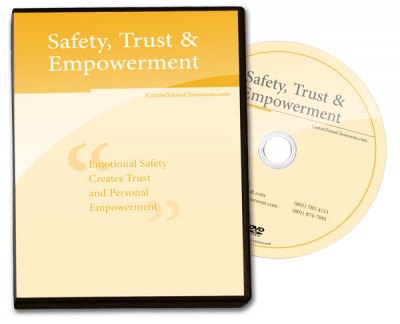Product Description
Ahh, drama. We have a love-hate relationship with drama, do we not? We watch dramatic movies and plays for entertainment, and yet we try so hard to avoid it in our own lives. Drama involves three characters: the victim, the rescuer, and the persecutor. In movies, we often refer to these as the victim, the hero, and the villain or antagonist. So long as they remain on the movie screen, we love them.
While dramatic exchanges can be entertaining from a distance, when we are involved in them, they sap our energy, take us out of reality, distort our perceptions of situations and experiences, cause us to feel victimized and/or justified in retaliating, and block us from forming strong bonds with others. Drama prevents true and deep peace from flowing into our lives. Drama promises an “easier” way to connect with other people and ourselves, but these connections through drama are false. Every time we base relationships on drama, it pulls a “bait-and-switch” on us: the love and connection we sought is replaced with anger, frustration, shame, betrayal, hatred and injury—which we participate in.
Drama is an intimate language, and we all speak it fluently, We engage in dramatic exchanges and patterns because we deeply desire to connect with other people. However, the mechanism called drama will preclude us from making the very connection we seek, because
- We don’t know how to be emotionally honest,
- We don’t know how to interact in relationships void of drama,
- We fear intimacy, yet yearn for intimacy,
- We are emotionally fragile because of unhealed traumas and/or abuses, or
- We feel depressed, resentful, lonely or isolated. These support us to feel trapped in our emotions and behavioral patterns and/or addictions.
All of these items that hinder or block connection are founded on shame, and shame is the life-blood of drama. Drama prevents true connects, and instead promotes a counterfeit connection.
Drama presents an opportunity to participate in its dynamics if we are not vigilant about its presence. But when we see it and can identify it, we have power to determine a conscious choice. We can live drama free if we will become aware of what drama looks like, how it speaks, and what lies drama tells us. The result is deep trust, unbreakable love, and soul-satisfying connection in our relationships.
This workbook includes:
- 14 “Sessions” (46 pages):
- Introduction to Drama
- Characteristics of Drama
- The Drama Triangle
- Internal Voice: Victim
- Internal Voice: Rescuer
- Internal Voice: Persecutor
- Internal Voices of Drama: An Example
- Beliefs: Victim, Rescuer, Persecutor
- Recognizing Drama
- How Drama is Acted Out
- Examples
- More Examples: Drama with Things & Stuff
- The Drama System
- Health Through Choice
- 12 homework activities (20 pages)
- 20 pages of supplemental diagrams
- Total: 86 pages
In this workbook, you’ll learn:
- What is drama? The roles (victim, rescuer, persecutor), the scenarios, the way drama happens, and the powerful yet surreptitious ways drama influences our choices.
- Why do we use drama? We desire strong relationships, yet drama does not produce what we seek. Drama provides a strong deceptive lens that makes us believe we are connected to others.
- How shame drives Drama
- Where do we learn the skills associated with drama?
- How we can stop drama in our lives, and how we can live without it. We can change.
- How to get out of drama & consciously choose to remove it from your life.
- How to appropriately “hold” unhealed wounds, and learn how to heal them.
- Other examples of drama—i.e. with other people, with inanimate objects, and in life’s situations. These examples will help you become aware of how drama has become part of your life, so that you can recognize it and make different choices.


Reviews
There are no reviews yet.